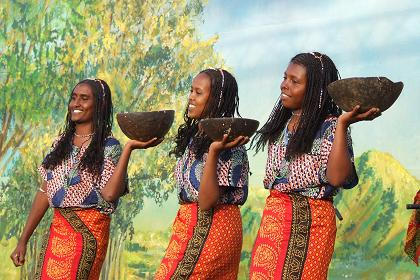Eritrea is a small yet captivating country in the Horn of Africa that is often overshadowed by its larger neighbours. With a rich history, diverse culture, and stunning landscapes, Eritrea deserves a closer look.
This article delves into the various aspects of Eritrea, from its geography and history to its culture and economy, providing a comprehensive overview of this unique nation.
Geographical Landscape of Eritrea
Eritrea is strategically positioned along the Red Sea, bordered by Sudan to the west, Ethiopia to the south, and Djibouti to the southeast. Its geographical diversity is striking, featuring:
- Central Highlands: A rugged plateau that runs north-south, rising to elevations of about 6,500 feet (2,000 meters). The highest point is Mount Soira, standing at 9,885 feet (3,013 meters).
- Coastal Plain: The northeastern edge of Eritrea boasts a 600-mile (1,000 km) coastline, which has historically been crucial for trade and cultural exchange.
- Dahlak Archipelago: Off the coast lies this stunning group of over 100 islands, known for their coral reefs and rich marine life.
Also Read: The Republic of Chad Facts, History, Culture & Travel – Africa Facts Zone
- Danakil Plain: This arid region features the Kobar Sink, which is more than 300 feet (90 meters) below sea level, showcasing the area’s geological extremes.
Eritrea’s climate varies significantly, with temperate conditions in the highlands and hot, arid weather in the lowlands impacting its agriculture and lifestyle.
A Brief Historical Context
Eritrea’s history is a tapestry woven with threads of ancient civilizations, colonial rule, and a long struggle for independence. Key historical milestones include:
- Ancient Civilizations: The region has been inhabited for thousands of years, with archaeological findings suggesting human settlement dating back over a million years. The Kingdom of Aksum, which flourished from the 1st to the 7th centuries AD, played a pivotal role in trade and the spread of Christianity.
- Colonial Era: Italy colonized Eritrea in the late 19th century, making it a significant part of Italian East Africa. Following World War II, the British administered it until it federated with Ethiopia in 1952.
- War of Independence: Eritrea fought a protracted war for independence from Ethiopia, which lasted nearly three decades, culminating in its recognition as a sovereign state in 1993.
Cultural Mosaic of Eritrea
Eritrea is home to a rich cultural heritage shaped by its ethnic diversity. The population consists of nine major ethnic groups, including the Tigrinya, Tigre, Saho, and Afar, each contributing unique traditions and customs. Key cultural elements include:
- Language: While Eritrea has no official language, Tigrinya and Arabic are widely spoken, reflecting the country’s cultural blend.
- Cuisine: Eritrean food is a delightful fusion of flavours, often featuring injera (a sourdough flatbread) served with various stews. The coffee ceremony is a cherished tradition, symbolizing hospitality and community.
- Art and Music: Eritrean culture is rich in oral traditions, poetry, and music, often reflecting the struggles and triumphs of its people. Traditional dances and songs are integral to celebrations and social gatherings.
Economy and Development Challenges
Eritrea’s economy is primarily agrarian, with about 80% of the population engaged in subsistence farming. However, the country faces significant challenges:
- Agricultural Limitations: Frequent droughts, soil erosion, and limited arable land hinder agricultural productivity, leading to food insecurity.
Also Read: The Democratic Republic of the Congo (DRC) Facts, History, Culture & Travel – Africa Facts Zone
- Economic Diversification: The government has attempted to diversify the economy by promoting mining and tourism, but progress has been slow due to political and infrastructural challenges.
- Diaspora Contributions: Eritrea has a large diaspora that plays a crucial role in the economy, providing remittances that account for a significant portion of the national GDP.
Political Landscape and Governance
Eritrea is a one-party state led by President Isaias Afwerki, who has been in power since independence. The political environment is characterized by:
- Limited Political Freedoms: The government maintains strict control over political expression, leading to criticism from international human rights organizations.
- Mandatory National Service: Conscription is mandatory for all citizens, often leading to accusations of human rights abuses and contributing to the country’s refugee crisis.
Modern Challenges and Global Relations
Eritrea’s geopolitical position makes it a focal point for regional dynamics, especially concerning its relationship with Ethiopia and Sudan. Recent developments include:
- Border Conflicts: Tensions with Ethiopia have historically influenced Eritrea’s foreign policy, although recent peace agreements have opened avenues for dialogue.
- Human Rights Issues: Reports of human rights violations, including forced conscription and suppression of dissent, continue to attract international scrutiny.
Conclusion: The Road Ahead for Eritrea
Eritrea stands at a crossroads, with its rich history and cultural heritage offering a foundation for potential growth.
However, addressing political repression, economic challenges, and human rights concerns is crucial for the nation’s future.
As Eritrea navigates its path forward, the resilience and spirit of its people will undoubtedly play a vital role in shaping the country’s destiny.
FAQs about Eritrea
What is the capital of Eritrea?
The capital city of Eritrea is Asmara.
What languages are spoken in Eritrea?
Tigrinya and Arabic are widely spoken, along with several other local languages.
What is the main economic activity in Eritrea?
Agriculture is the primary economic activity, with many people engaged in subsistence farming.
What are the major ethnic groups in Eritrea?
The major ethnic groups include Tigrinya, Tigre, Saho, and Afar.
When did Eritrea gain independence?
Eritrea gained independence from Ethiopia in 1993 after a long war of liberation.
What is the significance of the coffee ceremony in Eritrea?
The coffee ceremony is a traditional practice symbolizing hospitality and community bonding.
What are the main challenges facing Eritrea today?
Eritrea faces challenges such as food insecurity, political repression, and economic diversification.
Eritrea is a nation of contrasts, rich in history and culture yet grappling with modern challenges.
As the world continues to evolve, so too does Eritrea, with the potential to emerge as a significant player in the Horn of Africa.
